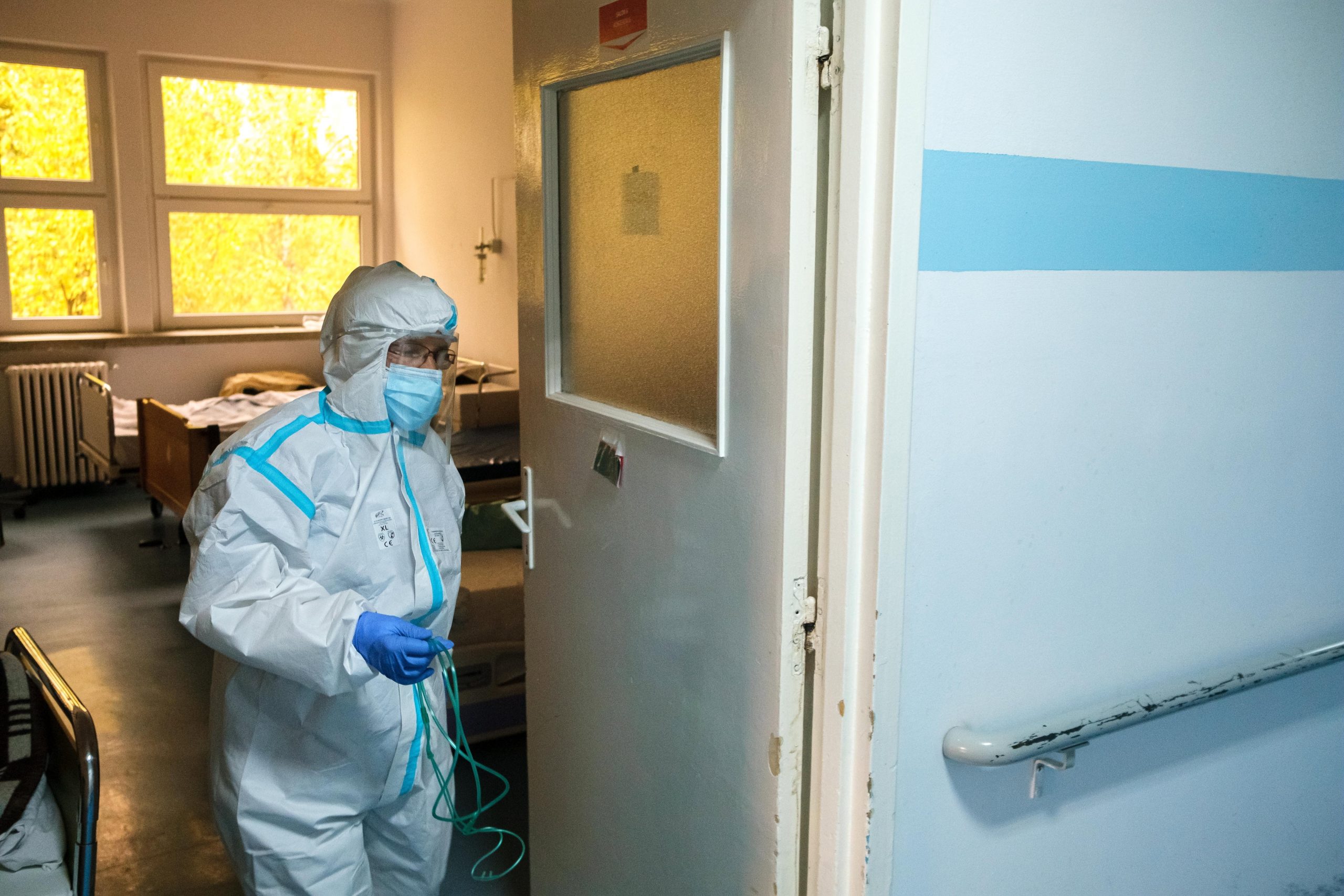
After experts questioned the effectiveness of Favipiravir against the coronavirus, the OGYÉI, Hungary’s food and drug administration authority, has pressed charges for scaremongering, the agency announced on Monday. A renowned biostatistician finds filing police reports highly problematic, as he believes the OGYÉI, instead of challenging these opinions with scientific arguments, is trying to intimidate researchers while violating the freedom of scientific expression.
OGYÉI claims misleading reports about favipiravir medicines appeared in various online media outlets between December 2021 and January 2022.
Related article
Egis Favipiravir Drug Licenced for Covid-19 Treatment
A new drug with the active ingredient favipiravir manufactured by Hungarian pharmaceutical company Egis has been licenced for treatment of Covid-19 by the National Institute of Pharmacy and Nutrition (OGYEI), the institute said on Saturday. The licence was issued in an expedited procedure. The drug, which Egis started developing in April, could be used to […]Continue reading
“The claims made in the articles question the effectiveness of favipiravir medicines, which may hinder the effectiveness of the protection against the coronavirus epidemic and may be capable of undermining patients’ confidence in medicines, and the therapeutic effect of the medicine,” the statement said.
Although OGYÉI did not specify which articles they were referring to, given the scarce amount of news pieces published about the antiviral medication during the given period, it is not difficult to guess that they are the relevant articles from Hungarian news sites 24.hu and Qubit.
In a blog post, clinical biostatistician and biomedical engineer, Tamás Ferenci, who is among the handful of Hungarian experts regularly sharing their scientific opinions on the Covid-19 pandemic, responded to OGYÉI’s allegation.
In his post, Ferenci stressed that the above-mentioned articles are not some pseudo-scientific news blogs alleging that “leaked documents show that everyone who takes favipiravir dies the next day.”
On the contrary, “In the articles cited, senior academics, professors of medicine, pharmacists with decades of experience were commenting in accordance with the current state of scientifc knowledge,” Ferenci emphasized.
Ferenci recalls that while the initial results for favipiravir were indeed encouraging, there is now a multitude of results that found no significant positive effect in covid patients; some of those that were found, have since been withdrawn on suspicion of falsification. The scientist also lists the most recent international meta-analyses, i.e. studies that review previous research on the subject and summarize their results, most of which conclude that there is little or no improvement in the health condition of Covid-19 patients treated with favipiravir.
Related article
Biostatistician: Withholding of Data about Virus “Downright Life-Threatening”
"People can only be expected to behave according to the weight of the situation if they are aware of the weight of the situation," according to Tamás Ferenci.Continue reading
Furthermore, only one Hungarian study has been conducted on the subject, and no significant effect was found. The antiviral drug was originally developed in Japan, but a few weeks ago its medical trial was also stopped there. No wonder it is not included in the US, UK, or German treatment guidelines or in the WHO recommendations.
But according to Tamás Ferenci, all of this is only the smaller part of the problem. “The much bigger issue is that the OGYÉI does not dispute the position it rejects on a scientific basis […] “but instead presses charges with the police.”
Ferenci says his opinion is completely independent of who is right on the specific issue, because if it happened to be the OGYÉI, he would still consider this procedure unacceptable. “The OGYÉI does not even try to argue, does not cite a single scientific article, does not refer to a single piece of research – but makes a criminal complaint. […] Even if there is a scientific debate about whether a medicine is effective, it cannot be concluded during a police procedure,” he notes.
The OGYÉI’s action gives the impression that their intention is to intimidate researchers, the scientist adds.
Ferenci also states, however small the issue of favipiravir’s effectiveness may seem on its own, “Hungarian universities, research institutes, and the [Hungarian] Academy of Sciences should take a very clear and very firm stand for freedom of scientific expression at this point […] otherwise no one knows what the next step will be. Only what its casualty will be: Hungarian science and the health of the Hungarian people.”
Featured photo illustration by Zoltán Balogh/MTI


